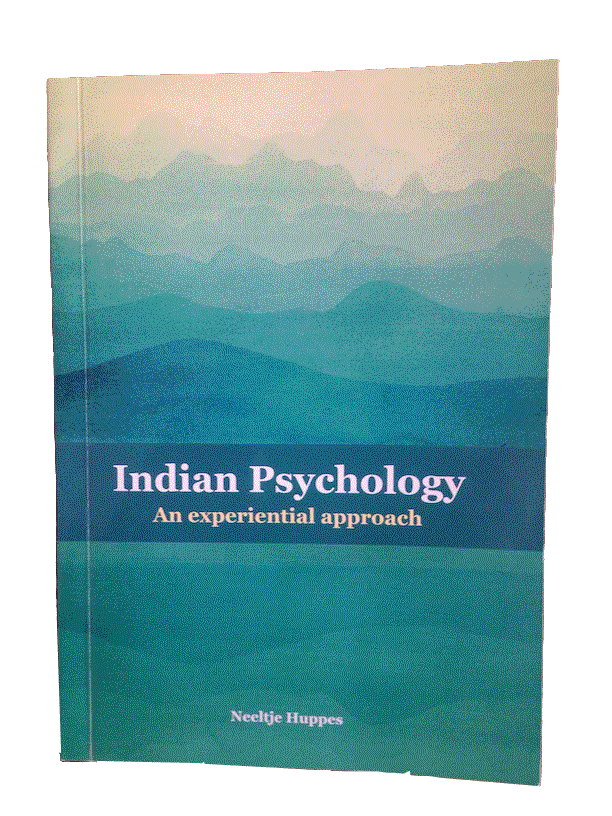Indian Psychology
An experiential approach
Neeltje Huppes
This book is aimed at undergraduate and postgraduate courses. It is an introduction with an experiential approach. This means that the students do not only become familiar with theoretical knowledge of Indian psychology but are also guided how to experience the concepts they study. This approach is accomplished by including, in each chapter, themes for discussion, experiential exercises and reflective practices. A methodology like this is based on the premise that for becoming a good psychologist it is essential to gain inner experience of theoretical concepts.
The book has four sections, while each section has four chapters.
Section One, Philosophical foundations of Indian psychology, and section Two, The structure of the human being, give a theoretical foundation. Section Three, Self-discovery and section Four, Self-perfection, open up a more practical exposure to the topics studied.
Each chapter has links to the world-wide web which give access to interesting articles and videos related to the content of the chapter at hand. The book is set up in such a way that the links to these articles and videos form an integral part of the study material of the book. All this extra material can be easily accessed through the "Internet Companion" page of this book on the IPI website. There is a link to this page below the contents.
CONTENTS
- A Progressive universe
- Thoughts on Consciousness
- The main philosophical systems of the Indian tradition
- The concept of satchitananda and the urge for happiness
- Planes of consciousness or gradations of substance
- Who am I in the evolution?
- Who am I — parts and planes
- Who am I — the inner nature, the ego, the soul and the Spirit
- The three gunas — the three essential modes of nature
- Self-observation
- The vital — prana and the Mind — manas
- The soul — antaratman
- The ego — ahamkara and individuality
- Dealing with difficulties
- Self-perfection — the process of conscious living
- A way of life
Section one — Philosophical foundations
Section two — The structure of the human being
Section three — Self-discovery
Section four — Self–perfection
An overview of integral living
Appendix
- Fear
- Annotated bibliography of books
- A selection from the web pages of this book
- Glossary of words in Sanskrit
View the
Internet companion to Indian Psychology: An experiential approach
PDF version of Indian Psychology: An experiential approach
Order the book straight away!
Rs 240/-
with free delivery within India
To order copies from outside India and for all other commercial enquiries please write to books@ipi.org.in or contact: Unifiers Social Ventures; https://onlineunifiers.ccavenue.com ; Phone +91-20-26562422, 41073077
For all other queries, please write to the author at neeltje@auromail.net

